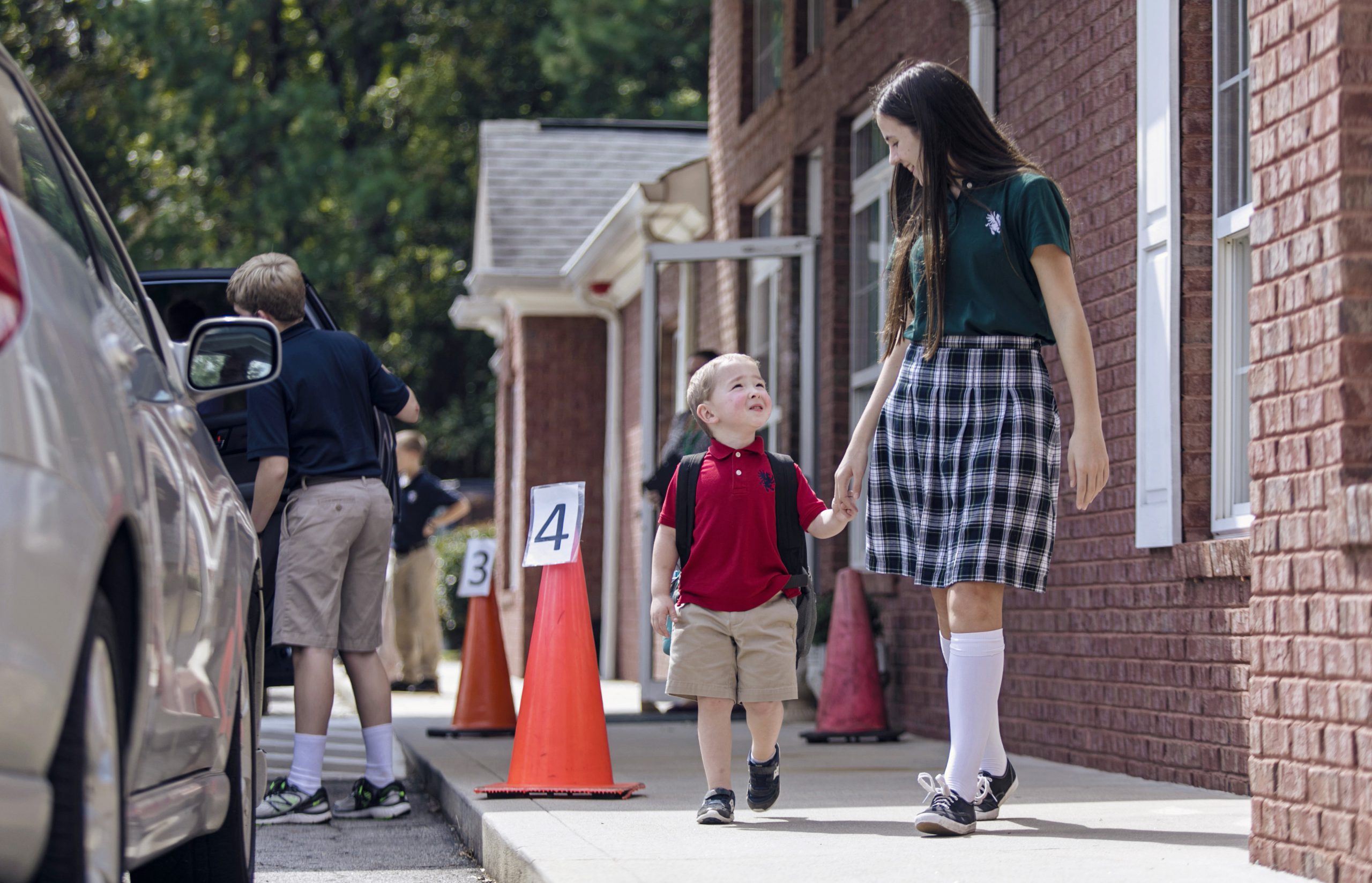”Is not the great defect of our education today… that although we often succeed in teaching our pupils subjects, we fail lamentably on the whole in teaching them how to think: they learn everything, except the art of learning.”
- Dorothy Sayers
PERSONAL. We believe that Truth is a Person: Jesus Christ. We also believe that children are not products we make; they are persons created in the image of God. This drives us to consider every aspect of teaching and learning at Oak Hill—from carpool to homework; classroom decorations to celebrations—in light of its impact on the children in our care.
TRIVIUM-BASED. Centered on the love of Jesus Christ as the why of learning, classical Christian education provides a deep study and practice of three foundational tools for learning, called the trivium (Latin for “three ways”). Mastering these three tools—grammar, logic, and rhetoric—enables students to approach any learning with confidence. In addition, because the skills correspond well with the way children learn as they grow, they provide a framework for a child’s educational journey through our school.
- GRAMMAR
In one sense, grammar is the set of rules that make language possible— words, parts of speech, sentences, and so on. But learning how to read signs—whether they are words, numbers, pictures, or music—is how we learn and master the skill of grammar. In Oak Hill’s Grammar School, students learn that every area they study has “grammar.” History has events, dates, and people; math has facts and operations; science has vocabulary and methods; and so on. We embrace students’ natural enjoyment of learning new things, memorizing, singing, and well-crafted stories, encouraging them as students explore and master the knowledge that will inform their experience in the Logic School.
-
LOGIC
In the Logic School, students continue to learn new things (grammar) while they focus on a new skill: logic, the art of thinking and debating well. Our curriculum emphasizes connections and interrelations. Having focused on the question of what in the Grammar School, students turn to answer why and how. Students are encouraged to contemplate, to question, to reflect, to reason about what they have learned and are learning. They also lay the groundwork for communicating well, which will be their focus in the Rhetoric School.
-
RHETORIC
Logic is grammar assimilated, and rhetoric is logic applied. Students take what they know (grammar), think and consider it carefully (logic), and then learn to present it persuasively, winsomely, and with eloquence. Our Portrait of a Graduate imagines students at this stage who are gospel-oriented scholars, who can read, think, write, speak, and act with wisdom, joy, and love for God and others.
As their mastery of the tools of learning grows, our students expand their courses of study into the arts and athletics. We seek to foster the same wisdom and joyful learning in these courses, but we direct students to practice new disciplines, aiming for virtue and excellence in new skills and their fruit. Courses in art, music, and drama expand students’ understanding of rhetoric, as artwork, song, and performance are also effective means of communication and persuasion.
LANGUAGE-FOCUSED. Grammar, logic, and rhetoric are the fundamental skills for reading, thinking, and communicating. We aim to help our students master language so they can read not only words but the world and its people. Learning Latin not only introduces students to language study, but it also helps them better understand their own native tongue.
HISTORY-CENTRIC. History provides an organizing framework for the classical curriculum. Students pursue the study of literature, math, science, art, and music historically, seeing the tapestry of human history and culture in its fullness.
Dive Deeper
Check out more Classical Christian Education resources here.



